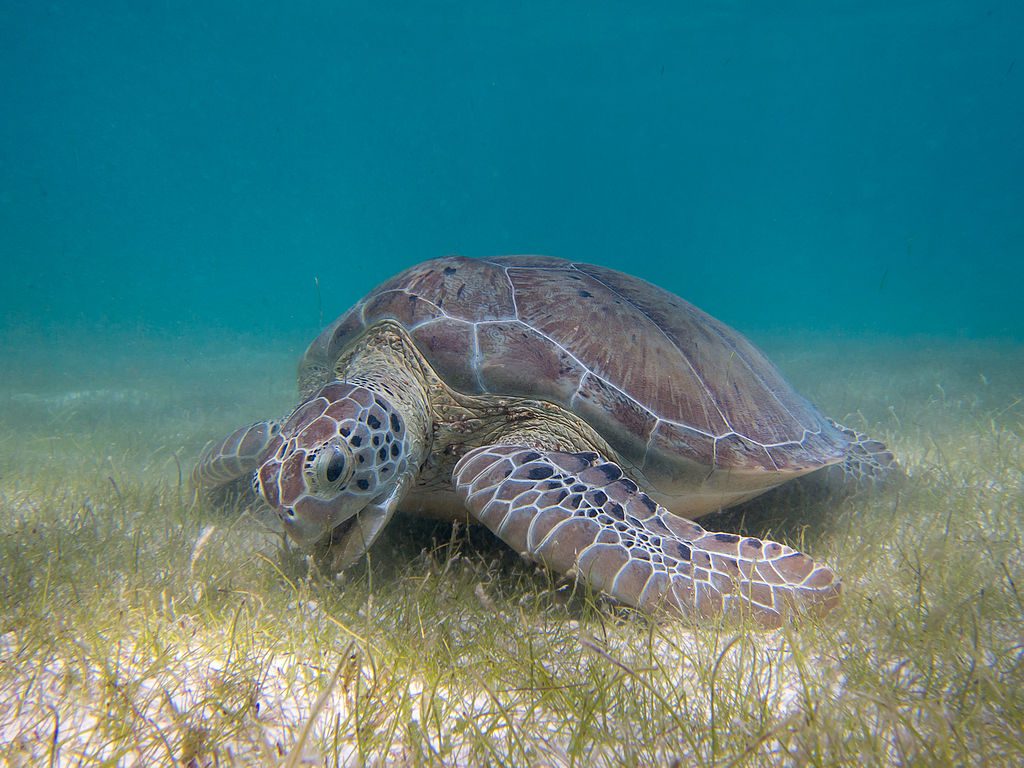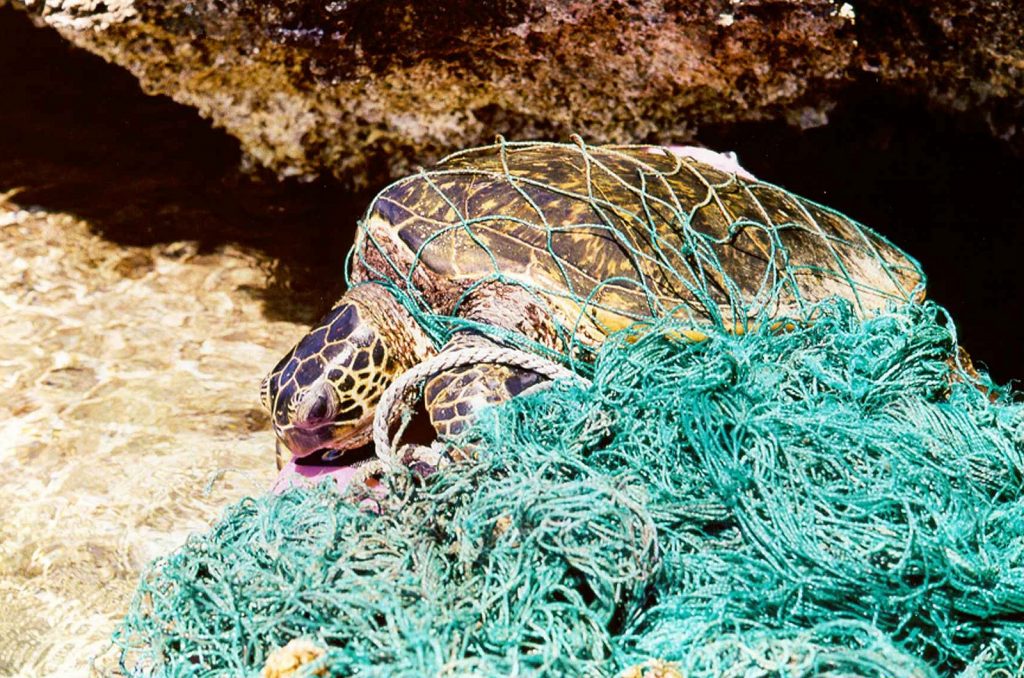Climate Change decimating male green sea turtle population, warn researchers

February 1st, 2018
Higher temperatures as a result of climate change are decimating the population of male green sea turtles, according to a new report in Current Biology.
The report published last month revealed that up to 99 per cent of green sea turtles born in certain Australian nesting beaches are now female as a result of above-average temperatures in the region.
Researchers from the National Oceanic and Atmospheric Administration sampled the Australian nesting beaches, finding that 99.1 per cent of juveniles, 99.8 per cent of subadults, and 86.6 per cent of the overall population of the green sea turtles are now female.
On the southern beaches of Australia, where the sand was comparatively cooler, the situation was slightly less alarming with 65 to 69 per cent of females in the overall green sea turtle populations.

Green Sea Turtle grazing seagrass at Akumal bay. Photo: P.Lindgren
Population skewed towards females
The complete feminisation of green sea turtles, the study’s authors warned, might happen in the near future. Green sea turtles play a crucial role in keeping their ecosystem healthy by chewing on seagrass, regulating sponge distribution and supporting marine life.
According to Dr Anne Marie Power, a lecturer at National University of Ireland Galway’s (NUI) School of Natural Sciences, eggs that are incubated in the sand with normal temperatures should produce about 50 per cent females and 50 per cent males.
However, in warmer-than-average temperatures the populations of sea turtles will be “skewed towards females”, Dr Power told The Green News. Warmer-than-average temperatures can cause further damage by killing embryos regardless of their sex.
Ocean pollution, according to Dr Power, is another issue contributing to high mortality rates in sea turtles. Hundreds of thousands of sea turtles die every year from ingesting ocean pollutants such as plastic.

Entangled green sea turtle Photo: NOAA PIFSC
Plastic Pollution
“First of all they’re feeding on and getting choked on plastic in the ocean, and secondly they’re caught in fishing nets,” Dr Power said. It is estimated that for every 1 kg of plankton in the ocean, there is 6 kg of plastic.
Green sea turtles are listed in the International Union for Conservation of Nature’s (IUCN) red list of endangered species. “As they become more endangered then they will require a lot of money to try and bring them back,” Dr Power warned.
Scientists, however, have proposed ways to tackle this issue by interfering with the natural incubation process. “You could manipulate the eggs so that they are not being incubated in ambient temperatures any longer,” Dr Power said.
The Washington Post recently reported that scientists believe shading beaches or pouring water on the sand to cool nesting areas might also be helpful.
[x_author title=”About the Author”]







